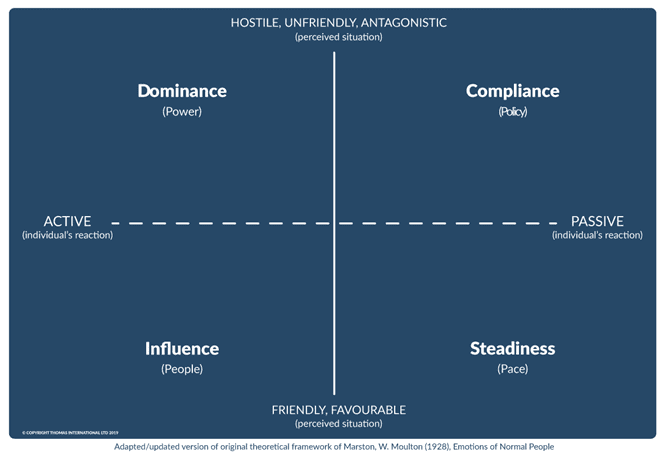People have never been as essential as they are now, especially for businesses; this is due to the ravaging impact of Covid-19. As it is popularly said, people are the greatest asset of an organisation. They make or break organisations. Hence, smart companies have identified that to soar and create competitive advantage in the market, a critical element that must be considered is who and how people are recruited.
Given that there is a higher tendency that recruiters (internal or external) might be unable to engage with potential candidates physically/face-to-face, before onboarding, there is a higher demand for strategies that can adequately test and assess candidates to identify the best-of-best. This, for now, transcends a want to a business need. If organisations are to thrive regardless of the situation we find ourselves in the world, we would have to be strategic in our recruitment.
From our 28 years of experience and trusted advisor status in partnering with organisations in diverse sectors to recruit the best candidates, we have discovered that behavioural assessments play a critical role in identifying and spotting candidates who resonate with the hiring organisation’s culture. Behavioural assessments explore individuals tendency towards certain kinds of behaviour and their communication style (how they are likely to interact with others).
Behavioural assessments provide an accurate insight into how people behave at work, allowing you to maximise your learning and development budget, gain greater certainty when recruiting, and understand how to avoid staff turnover. Some behaviour tests such as the Thomas International PPA provide an initial profile, detailing a person’s strengths and limitations, their communication style, value to the business, motivation, basic fears, and how they behave under pressure. Once an assessment is complete, you have instant access to business-outcome focused reports that enable you to match people to jobs, sift CVs, manage, coach, develop, onboard, and train your people. This way, an organisation is not only hiring for competence but culture fit. This is critical, especially as cost optimisation is a valid factor in staffing the workforce of today.
The first step in using behavioural assessments is to choose wisely. There are lots of assessments and tests which are good but very few are specific enough in helping business and HR people make informed decisions. If one were to be recommended, the Thomas International Personal Profile Analysis (PPA) would be mentioned. In the late 1950s and early 1960s, Dr Thomas Hendrickson developed William Moulton Marston’s DISC theory to produce the Thomas Personal Profile Analysis (PPA) for the workplace. Marston’s original theory stated that actions based on emotions are an individual’s biosocial response to supportive or hostile social environments. These actions determine how the individual interacts with the environment. It was theorised that how the individual interacts with the environment takes four basic directions: tendencies to dominate, influence, submit and comply. Marston published his book ‘Emotions of Normal People’ in 1928, which described his human consciousness theory in comprehensive detail.
The PPA, also known as the Thomas Behaviour assessment, determines how individuals see themselves responding to workplace situations that they perceive to be favourable or challenging, and reveals whether their response patterns are active or passive. Thus it classifies the individual’s behavioural preferences into four domains: Dominance, Influence, Steadiness and Compliance.
The Thomas PPA is a forced-choice assessment which uses an ipsative referencing method – an individual’s response patterns are compared to themselves rather than the scores of a comparison group. Individuals are asked to select one adjective which they believe describes them most and one which describes them least. To complete the PPA, individuals choose two trait adjectives from a block of four, one most like and one least. This process is repeated 24 times, giving 48 choices from a total of 96 words. The PPA is available electronically via the web and in paper-and-pencil format. Thomas International has also developed the PPA+ format suitable for people with a reading age of 11+ and candidates who are fluent in English but for whom English is not their first language.
The Thomas PPA has been subject to rigorous scientific testing to determine its reliability and validity as a psychological assessment. The PPA is registered with the British Psychological Society (BPS) after it was audited against the technical criteria established by the European Standing Committee on Tests and Testing, part of the European Federation of Psychologists’ Associations. Thomas International conducts on-going psychometric research with the PPA.
We have previously collaborated with the Psychometrics Centre at Cambridge University. Please get in touch with psychology@thomas.co.uk if you are interested in supporting our continuous development programmes. People are hired for their education, knowledge and technical expertise but are most often fired, reassigned, or overlooked for promotion because they lack the appropriate interpersonal skills. Behavioural assessments help ensure that the best-fitting candidates are hired and that the right kind of people is promoted. They enable people to increase their self-awareness and help individuals and groups to better communicate with each other.
In just 8 minutes, Thomas’ behavioural assessment, Personal Profile Analysis (PPA) can provide you with an accurate insight into how your employees behave at work.
*If you would like to run behavioural assessments as credible and valid like the PPA, kindly send us an email through people@phillipsconsulting.net
*pcl. are the partners of Thomas International in Nigeria
Written by:

Joshua Ademuwagun
Head of Advisory, People Transformation
REFERENCES
https://www.thomas.co/personal-profile-analysis-ppa

